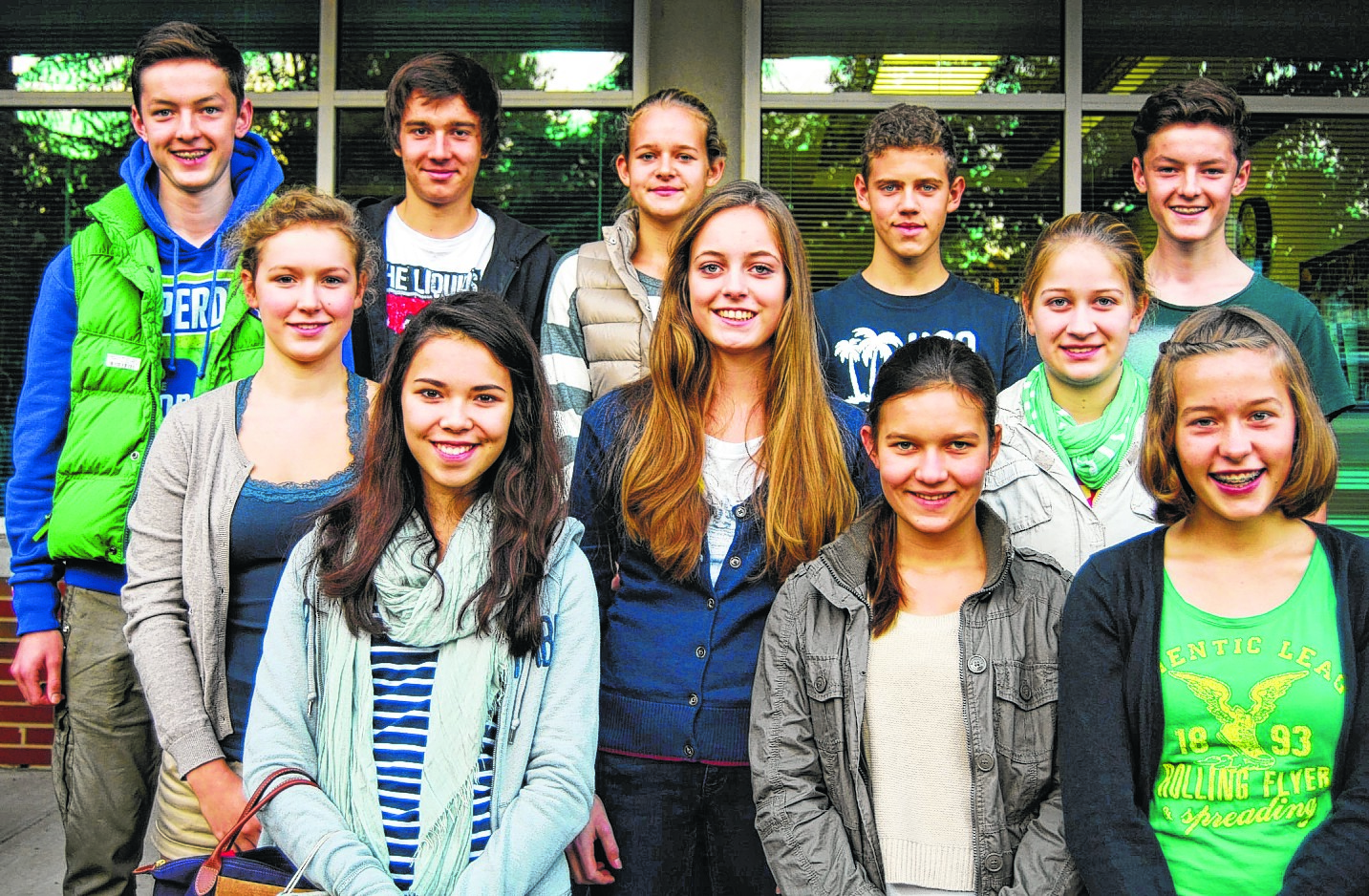Families of students attending GPS and McCallie recently hosted 11 exchange students from Dusseldorf, Germany, who spent 10 days visiting regional attractions such as Nashville's Country Music Hall of Fame, the U.S. Space and Rocket Center in Huntsville and Atlanta's Lennox Mall, in addition to attending classes.
Before the students departed, they agreed to answer a range of questions posed by members of GPS' Global Ambassadors Association at an assembly attended by the entire GPS student body.
The students said Atlanta was this region's city which most closely resembles their hometown of Dusseldorf.
"There's so much land and mountains," said Franziska Weitz of Chattanooga. "I didn't expect that."
Luke Renshawe said he was surprised how much bigger everything is in the United States, such as cars and houses.
Maria Esser said one major difference between Chattanooga and Dusseldorf is the main mode of transportation. The driving age is 18 in Germany, so they take public transportation everywhere they go, as opposed to here, where everybody drives.
Another difference is how and when they eat.
"I was surprised you can eat at every corner [in the U.S.]," said Nico Pesch.
He said German bread is generally better than in America, but his host family's homemade biscuits are the best food he's had here.
American food has more artificial coloring, fat and sugar than in Germany, where food is typically healthier, said Luke Renshawe.
"The food is unhealthy, but I like it," said Weitz.
German students eat lunch at home around 3 p.m. instead of eating in a school cafeteria, though they do bring food to school with them, said Cameron Renshawe.
Esser said before coming here she had never seen a Crock-Pot, which she found fascinating.
Extracurricular activities in Germany are done through clubs or at home rather than at school as they are done here, said Celina Meka. The most common activities among the exchange students were piano, soccer and tennis, and Natalie van Landeghem said U.S. fitness trend Zumba is popular in Germany as well.
Luke Renshawe said he enjoyed watching the presidential debates, as Germany has nothing comparable, but the German students said they noticed that American TV has many more commercials than in Germany.
Despite that fact, Cameron Renshawe said he enjoyed watching the Tennessee Titans and the cheerleaders, which his country lacks.
Luke Renshawe said German students are prohibited from using mobile devices at school. The exchange students said they visit computer labs for class sometimes, but don't use laptops for everything as they do here.
Several students commented on how nice and friendly the people are here.
"[Germans] are not as open when you first meet," said Pesch.
